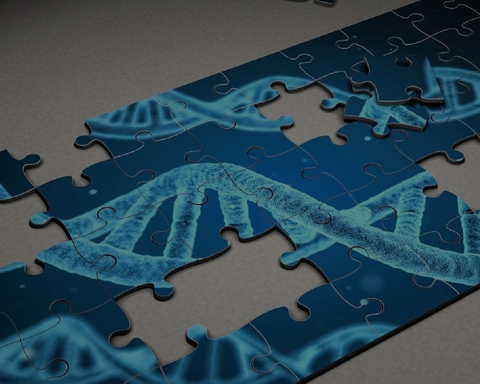Press Release – Never Abandoning the Fight for Ethical Care
The Terminally-Ill Adults (End of Life) Bill decriminalises ‘encouraging or assisting the suicide’ of someone deemed to have a ‘terminal illness’, subject to various eligibility criteria and procedural requirements. This encouragement of suicide violates the right to life of people with serious illness and contradicts the principles of care on which both the NHS and the hospice movement are founded. It prioritises ‘choice’ over safety and solidarity.
In other countries we see clearly how such laws create a culture where people are encouraged to think of themselves as a burden to society. The passing of this insidious Bill at Third Reading is an existential threat to people with a disability, people in coercive relationships, and people who suffer from mental illness.
The Anscombe Centre thus joins Cardinal Vincent Nichols in calling for ‘every effort [to] be made to limit the damage that will be done by this decision. This duty lies both on the House of Lords and on His Majesty’s Government.’
The Government should acknowledge the narrow nature of this vote (a majority of 23 out of 605) and that it fell short of an overall majority of Parliament. It should acknowledge the many voices who remain deeply concerned about the way the Bill was rushed through. It should not allow onto the statute books legislation that the professional bodies most concerned with its delivery have opposed, not as a matter of principle, but on the basis of how it is drafted. The Bill urgently needs to be revisited.
In addition to the continuing efforts in Parliament to mitigate the harm of this Bill, it is necessary to think of how to mitigate the harm if and when the Bill passes into law. We see from Canada and Australia how, even before the ink is dry, attempts are made to expand the practice and the law in the name of increasing ‘access’. We see how death becomes therapy. Where such expansion has been resisted or even partially reversed, this is only through the efforts of people of good will who continue to ‘call out’ the harmful character of these practices.
This ongoing fight for ethical care involves:
- continuing to use the transparent and well-established language of ‘assisted suicide’, not the ambiguous term ‘assisted dying’;
- defending those who are attacked for conscientiously maintaining ethical standards in their professional practice;
- establishing and defending places of social, nursing, and palliative care where people can be offered care secure in the knowledge that this excludes assisting their suicide;
- supporting wider efforts at suicide prevention, helping identify and address domestic and elder abuse, defending adequate provision of assistance to live through the benefit system, ensuring adequate provision of palliative care, and addressing inequalities of access and mistrust of healthcare services.
An essential element in the cause of maintaining ethical practice and social solidarity, despite the passing of harmful legislation, is ongoing research on bioethics. This includes collating and analysing evidence on the impact of assisted suicide or euthanasia across society as well as providing guidance for professionals, patients, and carers on how to negotiate the requirements of the law and the demands of justice. The Anscombe Bioethics Centre exists precisely to address this need for research and education in bioethics in service of the common good, and will continue to do so irrespective of the shape of the law.
END
Notes to Editors:
- Any part of the above can be quoted as coming from our Director, Professor David Albert Jones.
- For more information, please see the Centre’s full Guide on ‘Assisted Dying’ (euthanasia and assisted suicide) which includes a guide to the latest evidence concerning EAS internationally, the Centre’s series of briefing papers on EAS since 2021 and videos on subjects relating to EAS.
- If the issues discussed here affect you or someone close to you, you can call Samaritans on 116 123 (UK and ROI), visit their website or contact them on: jo@samaritans.org
- If you are reporting or writing about a case of death by suicide, whether assisted or non-assisted, please consult the Samaritans’ media guidelines on how to do so responsibly.
- For more information on the Anscombe Bioethics Centre, see our website: www.bioethics.org.uk
- For interviews or comment, contact: media@bioethics.org.uk
Most recent
Press Release – Anscombe Bioethics Centre Launches ‘Advance Decisions and Ethical Choices’ Project
31 July 2025
The Anscombe Bioethics Centre is pleased to launch a new suite of resources on advance statements, l...
Statement on the Anscombe Bioethics Centre
31 July 2025
A statement from the Governing Body of the Anscombe Bioethics Centre and the Trustees of the Catholi...
Copyright Announcement
25 July 2025
Henceforth, all work which had Anscombe Centre or Linacre Centre copyright is now dedicated to the p...
Sincerest Thanks for Your Support
Staff are grateful to all those who sustained the Centre in the past by their prayers and the generous financial support from trusts, organisations, communities and especially from individual donors, including the core funding that came through the Day for Life fund and so from the generosity of many thousands of parishioners. We would finally like to acknowledge the support the Centre has received from the Catholic community in Ireland, especially during the pandemic when second collections were not possible.
We would like to emphasise that, though the Centre is now closed, these donations have not been wasted but have helped educate and support generations of conscientious healthcare professionals, clerics, and lay people over almost 50 years. This support has also helped prevent repeated attempts to legalise euthanasia or assisted suicide in Britain and Ireland from 1993 till the end of the Centre’s work on 31 July 2025.



